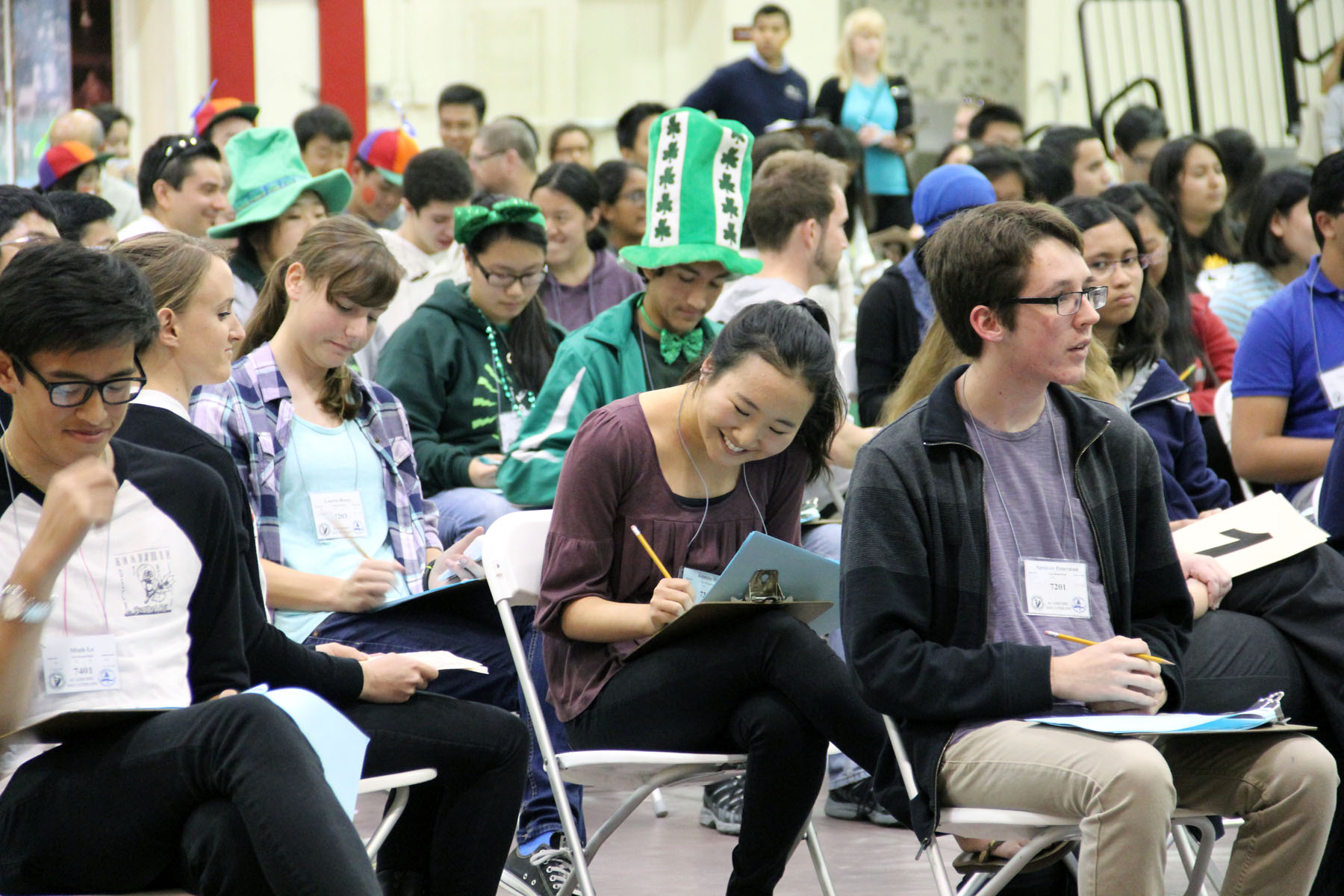
They enter the gym dressed in matching outfits, some carrying pom-poms, others with painted faces. They look nervous and excited.
Students spend months preparing for this day. In fact, the average Orange County Academic Decathlon participant reports spending about 20 to 25 hours a week practicing.
Staged over two weekends in January and February, this year’s Decathlon drew 41 high schools and more than 500 students who competed as individuals and teams for top honors — and a chance to represent O.C. at the state-level contest.
The Decathlon once again included objective tests in the areas of art, literature, mathematics, music, science and social science. Decathletes also competed in essay writing, speech and interview.
Each area, with the exception of mathematics, focused on the 2015 theme: New Alternatives in Energy – Ingenuity and Innovation.
For students and parents, the most thrilling part of the competition is the Super Quiz Relay, a fast-paced team event that looks like a quiz show and sounds like a sporting event. It’s the only event open to the public, and this year the bleachers of Westminster High School gymnasium were full of cheering parents, teachers, coaches, teammates and classmates.
Founded in 1968 by Dr. Robert Peterson, former Orange County superintendent of schools, the Academic Decathlon has evolved into one of the nation’s top scholastic competitions, attracting thousands of students each year. In 33 years of national competition, California schools have placed first 21 times and second 13 times.
For 47 years, the Orange County program has remained dedicated to preserving the original goal of creating a competition that appeals to students from all academic levels. Each nine-member team includes three A students, three B students and three C students. Quite often, those C students benefit the most. For many, this is the first time they will be recognized and given medals for academic success.
The structure also encourages teams to develop their strengths and work together toward a common goal. Teammates hold each other to high expectations by creating tests and quizzes for each other, hosting competition scrimmages and dedicating time to practicing and analyzing each other’s prepared and impromptu speeches, as well as perfecting their personal interview techniques. Students who are stronger at one academic subject often tutor and coach their teammates.
Regardless of the medals they take home, all students come away having strengthened the essential 21st-century skills of teamwork, communication and problem-solving.
This year’s OCAD Awards Ceremony will take place at 6:30 p.m. on Feb. 17 in the Roger Moore Theater at Orange Coast College.
